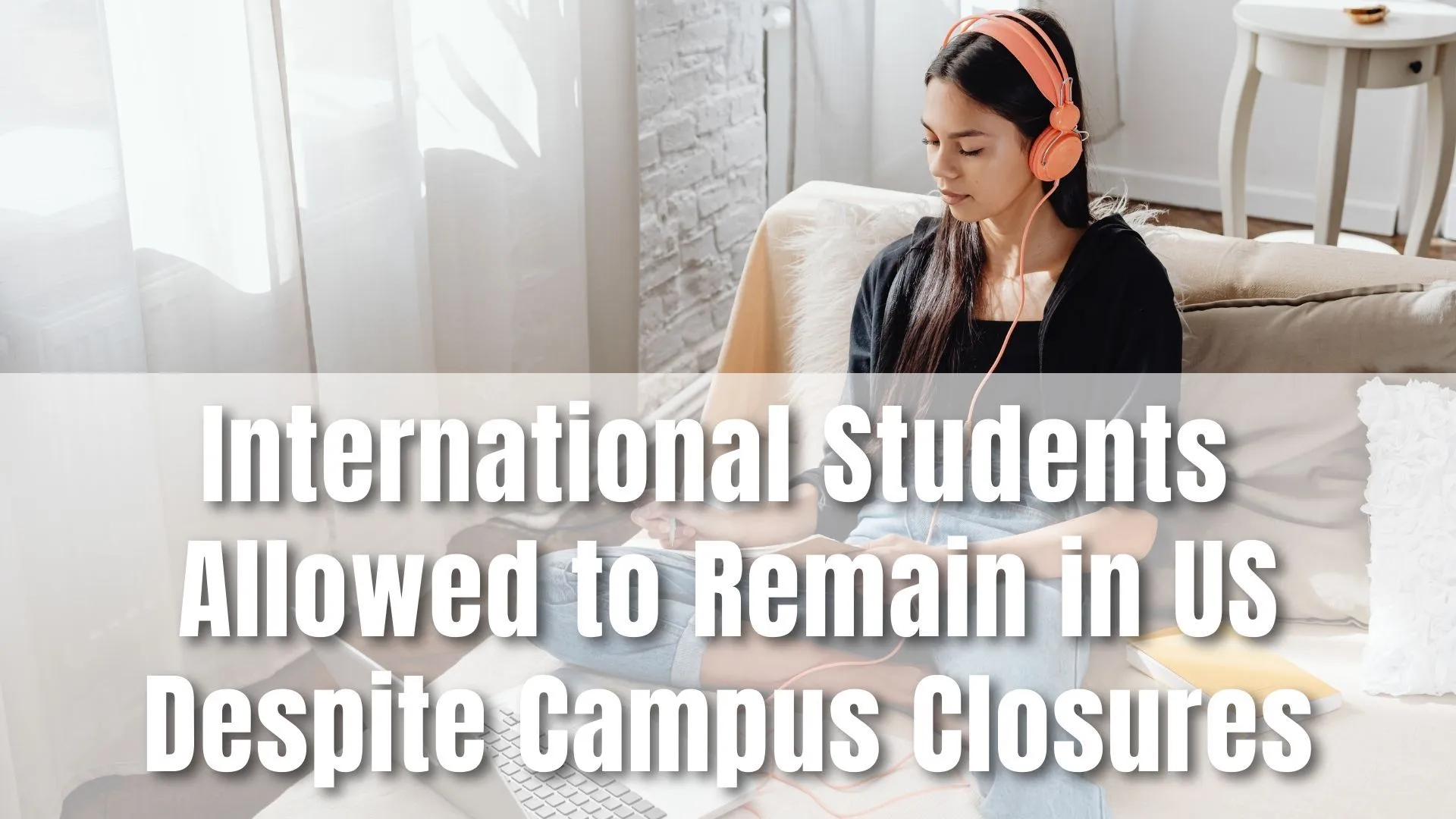In July 2020, the Trump administration rescinded an unpopular policy announcement made the previous week, after a lawsuit was filed by Harvard and MIT. The United States Immigration and Customs Enforcement (ICE) announced last week that foreign students on temporary F-1 and M-1 visas would not be able to remain in the United States if their school programs switched to 100%-online classes for the fall semester. Colleges and universities nationwide have been working hard to determine their individual plans and policies for re-opening in the fall in response to rising COVID-19 cases and safety concerns.
ICE’s proposed new regulation stated that foreign students attending US colleges would be required to leave the United States if their school opted to move fully online in response to the ongoing pandemic. Students whose schools chose a “hybrid plan” which included some in-person and some online courses would be allowed to remain as long as the student enrolled in at least one in-person class.
ICE Rescinds Guidance on Remote Learning
Immediately following the announcement, educational institutions spoke out, arguing that it would have negative effects on their school and students. Politicians and Silicon Valley businesses joined in to express their dissatisfaction with the administration’s decision. Dozens of lawsuits were filed over the following week, which ultimately resulted in the department agreeing to abandon the new restrictions.
The policy change expanding online course options for international students that was announced in March 2020 would also be extended through the next semester. ICE announced in June 2022 that they would continue to extend the guidance to cover the 2023-23 academic year.
At the beginning of the spread of COVID-19 in the United States, colleges and universities adjusted the standard policy for international students and allowed them to remain in the United States even though college campuses were forced to close and courses were moved online. The administration has now agreed to extend this rule so that international students are not forced to abandon their studies, transfer schools, or leave the country. While the standard policy has always been to require primarily in-person attendance for international students, the new and unprecedented concerns surrounding COVID-19 have made the status quo unsafe.
Despite this victory for international students, officials are expecting a record low number of foreign students enrolled in US universities in the fall. Due to embassy and consulate closures, widespread travel bans, and significant delays in visa processing, it will be difficult for new students and anyone who is not already in the United States to be approved for entry.
Those who may be eligible to change, extend, or adjust their non-immigrant status during this time are encouraged to seek assistance from an immigration professional.
ICE Rescinds New Visa Rules for International Students amid Widespread Lawsuits
The Department of Homeland Security (DHS) had been sued by 18 state attorneys general over the rule, which would have forced international students enrolled in remote-learning-only courses to switch to a university that offered in-person classes, leave the United States voluntarily, or face deportation.
The administration announced last week during court proceedings that it agreed to rescind the new visa rules for international students.
The new policy announced would have forced international students on two common types of visas to leave the United States if their schools only offered online classes this fall. A broad coalition of critics, including lawmakers, labor unions, colleges and universities, technology leaders and economists argued that the move would have harmed both the US economy and public health.
ICE issued a waiver in March safeguarding international college students from deportation should they be forced to enroll in online-only classes because of the COVID-19 pandemic. That waiver was supposed to last for the duration of the pandemic crisis but was abruptly rescinded in July 2020, even as the number of COVID cases was increasing across much of the country. Students seeking academic coursework on F-1 visas are limited in the amount of online coursework in which they can enroll, while students pursuing vocational degrees on M-1 visas aren’t allowed to enroll in any online courses, according to ICE.
Across the country, international students in 2018 contributed $45 billion to the US economy, according to the U.S. Department of Commerce. More than one million international students study in the United States each year, making up 5.5% of all degree-seekers, according to the Institute of International Education (IIE).
ICE agreed to revert back to its March guidance that permits students taking online classes to stay in the United States on F-1 visas for the duration of the pandemic and has continued to extend this guidance through the current academic year.
Talk to an Experienced Immigrant Lawyer
If you would like to apply for a US work visa — including L1, E1, E2,or O1 visas, or B1 in lieu of H1B visas and H1B visas — Passage Immigration Law can help.
Since it was established, the team at Passage Immigration Law has made a name for themselves as trustworthy and knowledgeable immigration advocates. Our expert team has helped over a thousand clients nationwide reach their immigration goals.
We provide a high level of communication and personal interaction throughout each case. In addition, we maintain an exclusive focus on immigration law so that we can better serve our clients and stay up-to-date on ever-changing developments in the legal immigration system.
Passage Immigration Law is a specialist immigration law firm with over 10 years of experience dealing with immigration applications. To discuss your situation with a legal team you can trust, contact us at (503) 427-8243, or you may schedule a consultation online.







